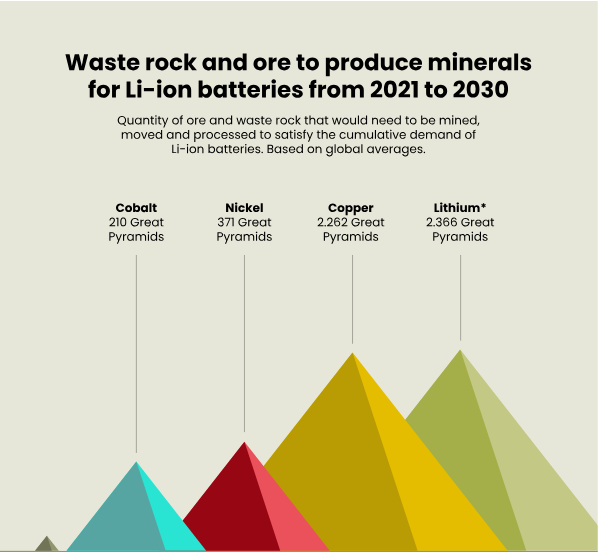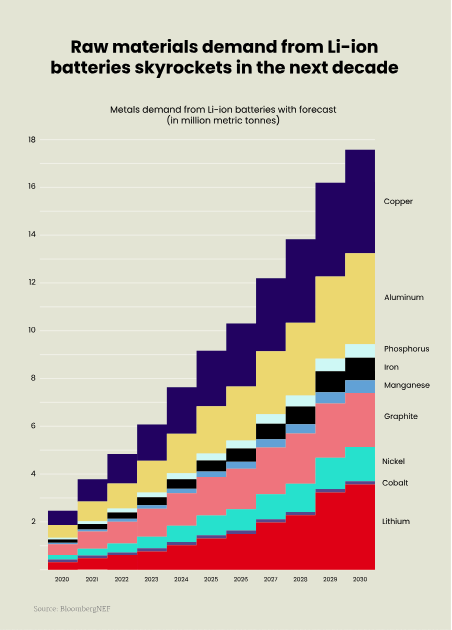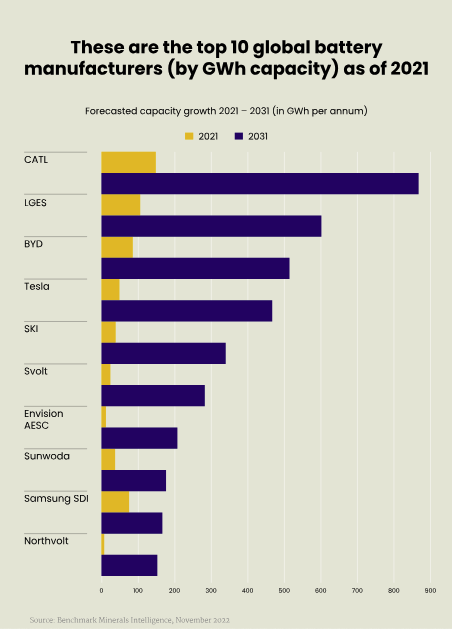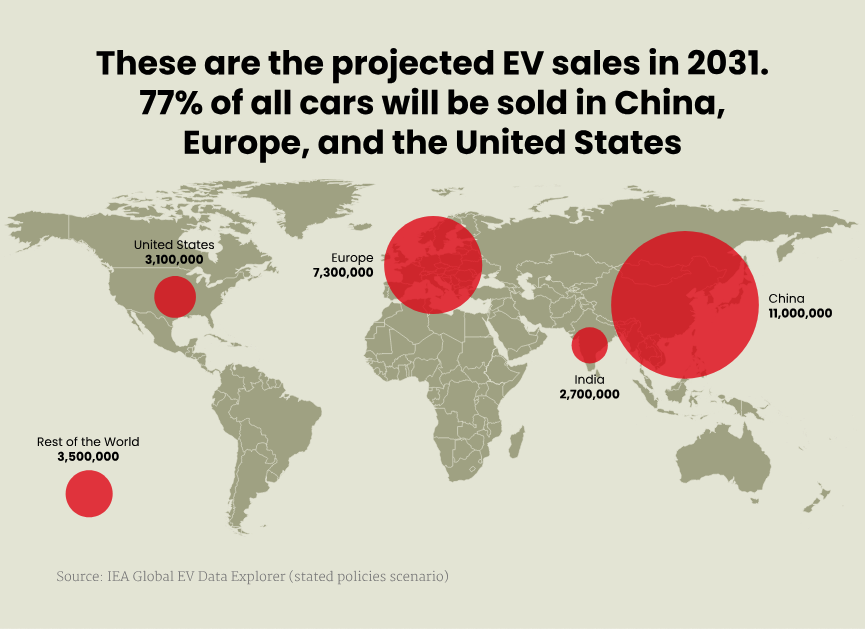Electric cars can play an important role in the transformation of the transport sector towards a fossil free future. But producing batteries for these vehicles comes with serious social and environmental costs.
A truly just transformation of transport requires reducing our material footprint. This means focusing on more and better public transport, and fundamentally changing our relationship to cars.
Transport plays a key role in the energy transition, as it accounts for almost a quarter of global energy-related CO2 emissions, of which a large majority is attributable to road transport. Transport-related emissions are significantly unequal worldwide, with the United States (US), Europe and China being the largest emitters.
To reduce these transport emissions, the US, the European Union (EU) and China rely heavily on technological solutions, particularly electric vehicles (EVs). In doing so, the world’s largest polluters fail to address the root cause of the climate crisis: their unsustainable consumption.
Human and environmental rights violations behind transition minerals

Electric vehicle triggers demand for lithium-ion batteries

Corporate giants control the transition
Battery manufacturing is controlled by a small group of large companies, as economies of scale are decisive in reducing production costs. In 2022, three companies (CATL, LG Energy Solution and BYD) accounted for almost 45% of production. Only the largest companies, with abundant resources and powerful technological alliances, will have the ability to survive. Battery manufacturers work with the logic of “either you go wholesale or you can fold.”. According to Benchmark Minerals, by 2031 the nine largest companies will control 53% of production capacity. Capital is concentrated in a few actors that have a substantial weight in the market, and this carries the risk of oligopolies being created.

The winning countries and the losing countries of the energy transition




